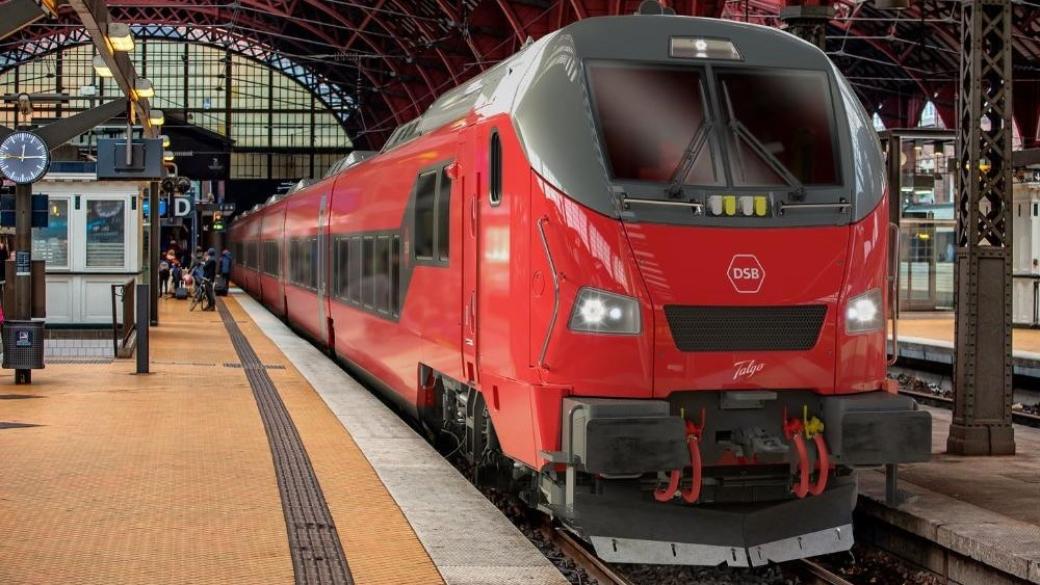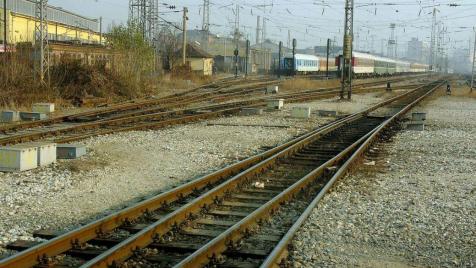The Bulgarian Ministry of Transport has suspended the largest tender for new trains in its history
Of the four calls launched for new rolling stock, only one – for the delivery of 18 electric locomotives - survives… for the time being

© ECONOMIC.BG / Patentes Talgo SL
A third tender for the delivery of new trains to Bulgaria, financed under the Recovery and Resilience Plan, has now been suspended. After it became clear last week that the Spanish company Patentes Talgo SL had filed a complaint with the Bulgarian Commission for the Protection of Competition (KZK) against the tender for the supply of 20 electric push-pull trains, the procedure was paused by the Ministry of Transport, which is the contractor.
We remind you that in the past month, two other tenders were also suspended. One is for the supply of 35 electric trains for over 550 million euros (without VAT), and the other is for 7 double-decker trains with an estimated value of over 205 million euros (without VAT). The suspension of these procedures was also the result of complaints filed by international companies. KZK has already issued a decision on these appeals.
At the moment, only one procedure has not been petitioned to the Commission – the one for the supply of 18 electric locomotives, with a value of over 34.1 million euros (without VAT). However, the Bulgarian Ministry of Transport extended the deadline for submitting bids on this tender until 16 November. The old deadline was 31 October.
The push-pull train tender
The latest suspended tender is also the most expensive out of the four launched in total. It is worth over 600 million euros excluding VAT.
Last week, it became clear that Patentes Talgo SL is appealing the clarifications received from the Bulgarian Ministry of Transport. On 2 November, KZK initiated proceedings on the complaint, and on the following day, it stopped the procedure, according to a consultation with the Public Procurement Register of Bulgaria.
KZK decisions on the other complaints
The Bulgarian antimonopoly authority accepted the petition from Skoda Transportation A.S. to impose provisional measures – that is, the suspension of the procedure for the delivery of 35 electric trains. The company objects to the technical specifications and requirements for proven experience laid down by the Ministry, claiming that they are discriminatory, unfounded and "result in limiting the range of offers and thus the options for the contracting authority to make a choice."
The Ministry of Transport objected on the grounds that due to the suspension, the deadlines laid down in the Recovery and Resilience Plan will not be met, which will result in Bulgaria failing to receive European funds from this program. The Ministry added that
this may lead to the state budget covering the incurred costs, as well as to a delay in the modernisation of the train stock."
However, KZK did not accept these arguments and imposed the suspension of the procedure.
When considering the request for the imposition of a temporary measure, the principle laid down in Article 1 of the Bulgarian Public Procurement Act, namely ensuring efficiency in spending public funds was taken into account. The possible conduct of an illegal procedure would lead to the expenditure of funds contrary to the stated principle," the decision states.
However, KZK did not come to the same conclusion regarding the complaint of the Polish company Stadler, which requested the suspension of the procedure for the delivery of 7 double-decker trains. The company was not satisfied with the explanations received from the Bulgarian Ministry of Transport. The petition stated that the answers were not clear, specific and comprehensive. It also argued that the failure to provide explanations with specific, clear and precise instructions on the requirements of the documentation hinders participation in the tender procedure and the preparation of a quality and competitive bid.
The Ministry of Transport objected to this petition using the same arguments as with the previous complaint.
The Bulgarian antimonopoly authority ultimately dismissed the claims of the Polish company. It stated that Stadler Polska has not set out reasonable and substantiated arguments to prove that the interests of the parties, and in particular those of the plaintiff, will be irreversibly damaged and that this could be prevented by the imposition of the precautionary measure.
Nevertheless, even if the Ministry of Transport completes the tender procedure and eventually selects a beneficiary, it will not be able to conclude a contract until the dispute with Stadler has been resolved.
KZK’s determinations may be appealed at the Bulgarian Supreme Administrative Court.

 Gloria Hristova
Gloria Hristova 




